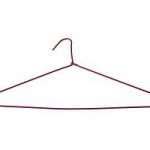Wednesday, 16th November 1977 was a cold autumn evening. Night had long fallen by the time kick off was due, and beyond the upstairs window darkness covered the Somerset landscape; even the absence of the moon contributed to the gloominess of the moment. England were to play Italy in a qualifying match for the 1978 World Cup and the television was not working. Ordinarily, this was never a problem, my father’s years as a radio and radar engineer meant he made quick work of television problems, except he was 600 miles away working on an RAF station in the North of Scotland as part of some NATO exercise.
The television screen was no more than a grey fuzziness, impenetrable as the dark outside. In 1977, television still came in two formats: the UHF signal gave a picture formed by 625 lines, primitive compared to the digital pictures with which we are now familiar, but considerably more refined than the 405 lines of VHF. The advantage of VHF was that the signal seemed more flexible.
The problem seemed to be that the aerial was not working. Switching the television to the VHF channels there might be a chance of doing something for a signal. Attaching a spare length of aerial cable to a wire coat hanger and hanging the hanger on the handle of the window, all that remained was to plug the cable in. ‘Hey presto’. It was not perfect but the match could be watched. England won 2-0, but it did not secure them a place in the following year’s finals.
Since that November evening, 35 years ago, it has been a matter of personal pride to try to fix things. The house has an old satellite dish left by a previous occupant and a box adequate for the Free To Air channels. Searching the Internet for the frequencies, it was possible to tune it into all the BBC and ITV channels. It is possible to watch BBC Bristol while sitting in a room on the far side of the Irish Sea.
It was the threat of the end of analogue broadcasting that prompted the purchase of a new box, adequate to receive the Irish digital terrestrial channels as well as those from the Astra 2A and Eurobird satellites. All was well until suddenly the screen began to say ‘No Signal’; BBC Bristol, along with every other British channel, was gone. Two hours spent changing boxes, changing cables and scratching the head achieved nothing.
Tugging at the cable that went out through the window frame in frustration and annoyance, the screen suddenly sprang into life; we were reconnected with the outside of the world. Points West can be watched. There must be a wire coat hanger somewhere outside.
